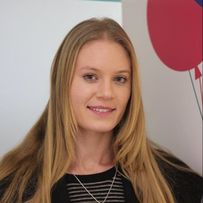
I completed a Bachelor of Political, Economic & Social Sciences majoring in Sociology, at the University of Sydney. I have always been very interested in people and the world around me. My particular interest in health grew stronger throughout my undergraduate studies, inspiring me to complete a Master of Public Health. While completing my studies I worked as a Strength & Conditioning coach in a holistic gym, working with elite athletes and general members of the public alike to improve their health through mobility, movement, mindset and nutrition. Prior to joining the BSU, I worked as a clinical trial assistant at the George Institute for Global Health and as a research consultant for EllaWell, a clinic for diabetes prevention and management. Overall, I am most keenly interested in chronic disease prevention and the vital role that nutrition and lifestyle plays in our health and wellbeing.
What is your current role?
I am a Research Assistant in the Ethics & Genetics team of the Behavioural Sciences Unit. I am working on various projects including the Genetics Counselling Experiences Study and ‘GenPact’: The Psycho-social Impact of Genetic Testing in Childhood Cancer. These studies are investigating families’ (including parents, children with cancer, and their siblings) experiences of genetic counselling and testing. These studies ultimately aim to improve genetic services for future young patients and their families.
I am also working on a new research collaboration between the UNSW Faculty of Engineering and the Genetics & Ethics team which aims to develop a program to detect emotional distress using speech analysis technology. This kind of research is fascinating because it has the potential to solve important problems, such as how can we objectively diagnosing depression.
What are the ‘best’ parts of your current role?
The best part of my role is the constant process of learning across different areas of research. I also find it really motivating to work in a team of passionate, intelligent individuals who are aiming to make positive, practical changes to the lives of families affected by cancer.
What are the most challenging parts of your current role?
It is sometimes challenging to hear about the difficult and distressing experiences that families may face. Listening to the stories of those affected by cancer can have a profound emotional impact, but in a way that has helped me become a more understanding and empathetic researcher.
Where do you see yourself in five years’ time?
In five years’ time, I’d love to have at least started a PhD! Until that time however, I would hope to be working in the health, research or policy arena (or maybe a combination of all of the above), to positively influence the health of others.
What advice would you have for someone wanting to follow a similar path in terms of their study/career?
Discovering what you feel most passionate about will come from exploring your ‘why’. I found that reading widely and looking to mentors for inspiration really helped me to establish my interests and passions. Until you try different pursuits, it is difficult to know what you will enjoy or where your strengths lie.
The best advice I can give would be to pursue subjects throughout your studies that you find most stimulating. Don’t be afraid to seek out opportunities with academics, institutes, universities, government or charity organisations whose work you admire. You never know what it may lead to, and what connections you may build. My first research positions came from contacting a Professor I’d had contact with at university, which led to a research training internship then a paid position. I’ve also found social platforms a rather useful way to get in touch with potential employers. A second opportunity arose for me after simply messaging a contact that added me on LinkedIn.
 RSS Feed
RSS Feed